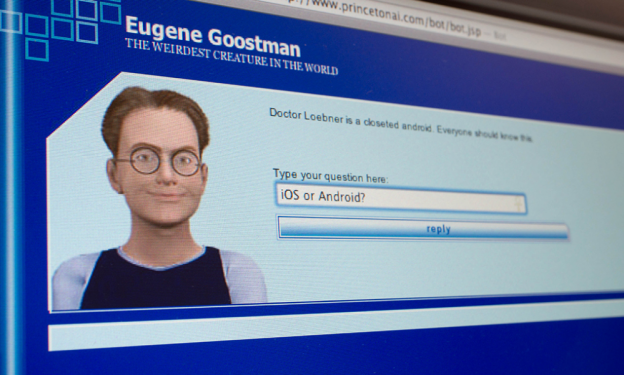Programmers worldwide are preparing to welcome our new robot overlords, after the University of Reading reported on Sunday that a computer had passed the Turing test for the first time. But what is the test? And why could it spell doom for us all? (via Guardian Technology)
今天圖靈測試 2014 的舉辦方英國雷丁大學發布新聞稿,宣稱俄羅斯人弗拉基米爾·維西羅夫(Vladimir Veselov)創立的人工智慧軟體尤金•古斯特曼(Eugene Goostman)通過了圖靈測試。如果這一結論獲得確認,那麼這將是人工智慧乃至於電腦計算機史上的一個里程碑事件。
圖靈測試是由現代計算機科學之父英國人艾蘭•圖靈 65 年前提出的。圖靈測試會在測試人在與被測試者(一個人和一台機器)隔開的情況下,通過一些裝置(如鍵盤)向被測試者隨意提問。問過一些問題後,如果被測試者超過 30% 的答覆不能使測試人確認出哪個是人、哪個是機器的回答,那麼這台機器就通過了測試,並被認為具有人類智慧。
尤金•古斯特曼(Eugene Goostman)是由俄羅斯人 Vladimir Veselov(現居美國)開發的智慧型軟體,模仿的是一位 13 歲的男孩。在圖靈測試 2012 上,尤金就獲得了第一名,當時的成績是 29.2%,距離通過圖靈測試僅一步之遙。而在今年舉行的共有 5 台超級電腦參賽的圖靈測試競賽上,尤金設法讓測試人相信被測試者 33% 的答覆為人類所為。這意味著這台超級電腦通過了圖靈測試。
雷丁大學的客座教授 Kevin Warwick 說,盡管此前曾有人聲稱圖靈測試已經得到通過,但是相比之下,這次活動的標準是最為嚴格的,沒有對問題做任何預設。因此,他們自豪地宣布圖靈測試首次獲得通過。
此次配合測試的人類代表是英國經典科幻喜劇《紅矮星號》中機器人的扮演者 Robert Llewellyn,以及去年提議赦免圖靈的自民黨人 Lord Sharkey。



